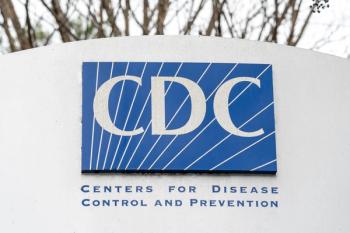
Combating high drug costs: What pediatricians can do
One of the most frustrating elements of medicine, for patient and pediatrician alike, is the cost of medication -- and the often-inscrutable reasons for that cost. At the final plenary session for October 27, 2019, at the 2019 American Academy of Pediatrics National Conference & Exhibition, John D. Lantos, MD, director at the Bioethics Center and professor of pediatrics at the University of Missouri Kansas City School of Medicine, presented on the high costs of medication, the ethical conundrums the costs can create, and what the pediatrician can do in practice to help combat.
One of the most frustrating elements of medicine, for patient and pediatrician alike, is the cost of medication -- and the often-inscrutable reasons for that cost. At the final plenary session for October 27, 2019, at the 2019 American Academy of Pediatrics National Conference & Exhibition, John D. Lantos, MD, director at the Bioethics Center and professor of pediatrics at the University of Missouri Kansas City School of Medicine, presented on the high costs of medication, the ethical conundrums the costs can create, and what the pediatrician can do in practice to help combat.
How we got here
High drug costs are an area of bipartisan support and one with a long history, noted Dr. Lantos. Sixty years ago, the Kefauver hearings looked into drug costs. These hearings led to pharmaceutical companies having to provide proof of efficacy for approvals. However, the changes also increased the length of time for approvals and indirectly led to “right to try.” Then the Hatch-Waxman Act of 1982 helped the generic drug industry blossom.
One of the companies to blossom as a result was Mylan, growing from a business in a garage in Sulfur Springs, West Virginia, to a company with more than $11 billion in revenue and over 30,000 employees. The company was also at the center of one of the most newsworthy drug price increases of recent memory.
Dr. Lantos described how the Epi-Pen was one of the many drugs that Mylan acquired when they purchased the generic drug arm from Merck in 2007. At the time, the sale of Epi-Pens was roughly $200 million. Over the next several years, Mylan advocated for anaphylaxis awareness, urged the US Food and Drug Administration to change recommendations and advocated that all schools be mandated to have an Epi-Pen.
Dr. Lantos paused here to say that these efforts likely did help save children’s lives. However, Mylan then increased the price of the Epi-Pen from $100 per dose to $600, which moved revenue from $200 million to more than $1 billion.
The question posed to the audience was whether this was a huge success story for Mylan, despicable behavior from the company, or both?
How does the United States compare?
Dr. Lantos then compared the US drug market, which is hugely complex with drug costs varying from patient to patient, to drug markets elsewhere. In other countries, the drug is developed, proven safe, a government commission decides if the drug is worthwhile, a price is negotiated with the pharmaceutical company, and then a single price for all patients is determined.
A similar system called value-based pricing is often recommended by physicians who seek to reduce drug costs. For each drug, the system would evaluate health benefits, side effects, scientific novelty, research costs, treats a severe disease, and treats a rare disease.
What pediatricians can do
Concluding the presentation, Dr. Lantos offered advice that pediatricians can use in day-to-day practice and to advocate for change.
In day-to-day practice, he recommended that providers should never assume that a family can cover the cost of prescriptions and should ask about the out-of-pocket costs the family will need to cover. He also said that providers should seek to understand where families are coming from and help them get the medical care that they need.
For systemic change, he highlighted some potential non-partisan, non-radical policies, which included using value-based pricing; having transparency about prices, costs, and rebates; allowing the import of drugs; and allowing Medicare to negotiate drug prices.
Newsletter
Access practical, evidence-based guidance to support better care for our youngest patients. Join our email list for the latest clinical updates.








